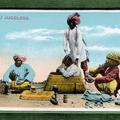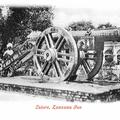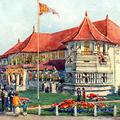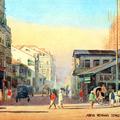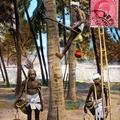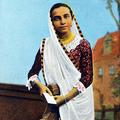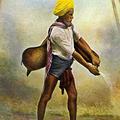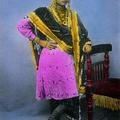Hindu Jugglers
Although the origin of the word juggler as "one skilled in keeping several objects in motion in the air at the same time by alternately tossing and catching them" goes back to the 14th century and seems to stem from the Middle English "jogelour

